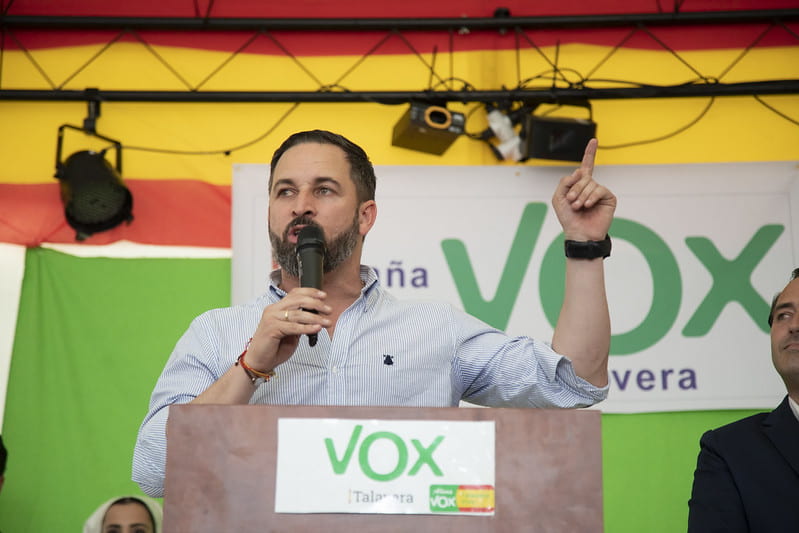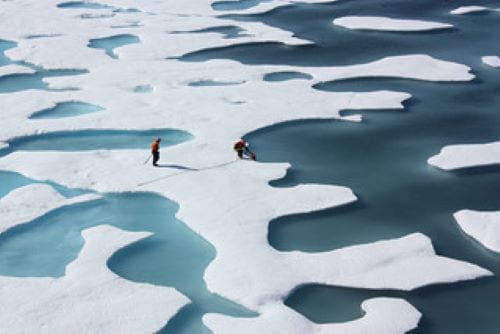
I studied abroad in Alicante, Spain during the spring semester of 2019. I loved my experience, especially the experience I recieved by choosing to live with a host family. I was able to really immerse myself in Spanish culture through my host family and in turn they eagerly showed me their city and their traditions. One of the things my host mother said when she was walking me around Alicante for the first time has stuck with me, even since I left Spain. She pointed out the many Spanish flags that were hanging on the balconies and outside of the windows of the myriad apartment buildings around the city. Unless there is a soccer game, she said, Spaniards hang the Spanish flag outside to show their solidarity with the rising nationalistic ideals in Spanish politics. I looked around that day and was surprised at the number of flags that I saw.
Nationalism was the primary basis of Francisco Franco’s dictatorship that lasted from 1939 until his death in 1975. Franco’s ideologies have been compared to Hitler in Germany and Mussolini in Italy. He led a civil war that lasted three years, dramatically reduced the rights of women to almost nothing, and is considered responsible for killing close to 150,000 people. When Franco died, many Spaniards hoped that extreme Spanish nationalism died with him. Spain has been one of the few countries that has not seen a conservative resurgence until very recently. The rise of the political party Vox has led to a return in ultra-right, conservative, nationalism.
Vox is a far-right nationalist party in Spain that was founded in 2013 by politicians who did not believe that the right wing People’s Party was conservative enough. Vox is considered socially conservative as it works to restrict abortion and economically liberal as it champions policies that reduce taxes. The party’s chief goals include removing the current system of regional powers in favor of one government and one parliament, eliminating the Constitutional Court and the Senate, and introducing Spanish language examinations at the end of each school cycle. At the forefront of Vox’s goals are the needs of Spaniards as party supporters chant the phrase “Spain first.” The party and its leader Santiago Abascal have been compared to the United States President, Donald Trump, and his administration. Ultimately, Vox has gained power by taking a stoic stance against the Catalan separation movement, a movement where the wealthy region of Catalonia attempts to secede from the country of Spain, solidifying the party’s nationalistic views.

Source: Vox España, Creative Commons.
A large concern about the rise of Vox surrounds the controversial policies that they support. One of the ways that Spaniards have compared Vox and Franco is with their treatment of women and their stance on women rights. Spain recently passed a gender violence law in hopes of reducing the number of women killed or harmed by domestic abuse within the country. The first Spanish political party to openly challenge the law, Vox advocates for repealing the gender violence law as they deem it discriminatory against men. Instead, the party is campaigning for replacing the gender violence law with a Family Violence law that will, as they say, protect all groups. At the same time, the leaders want to create a Family Ministry and use the law to protect the “natural family.” It is interesting because Vox routinely advocates for the family group as a whole, as shown by their support for longer maternity leave and their support for mothers, but when asked about their stance on the divorce or separation of a woman and a man, the party has always argued in favor of the man. Vox aims to eliminate what they consider to be radical feminist groups and prosecute any rape or sexual harassment claims that could be deemed phony. This is problematic because a political party that citizens trust publicly decreeing a claim to be phony without any evidence against the claim delegitimizes the woman making the claim as well as any claims made after. The delegitimization removes any power the woman may have as well as the power of any women who follow her. Vox claims that a “genocide” of men is taking place in the modern era and their policy choices have reflected their stance on women’s rights.
Immigration has been a touchy subject for many countries around the world in the past couple of years. Vox has taken a very strict perspective on immigration which has gained the party a lot of supporters from the conservative right. However, these strict policy choices could have some serious ramifications on many people in the country should the policies be enacted. Vox advocates for immigration quotas for a majority of countries around the world, referencing back to their “Spain First” mentality. The nationalities that would be exempted from these quotas would be those that also speak Spanish and have good cultural ties to Spain. Vox is also in favor of deporting all undocumented immigrants, no matter their home country situations or the circumstances that caused them to move to Spain illegally. At the same time, Vox wants to prosecute non-profit groups that aid illegal immigrants with anything from providing legal representation to finding shelter for the immigrants. Finally, the party states that removing state aid for illegal immigrants would be a priority.
Vox has proven to be a party that wants Spain to return to an entirely Catholic country. They champion Catholic values and the Catholic church while threatening to remove the presence of other religions within the country. This is especially concerning for Muslim groups within Spain. Spain has a large percentage of people who identify as Muslim, especially in the south of Spain because of the close proximity to the north of the continent of Africa. Vox supports shutting down mosques throughout the country and arresting and deporting what the party leaders consider to be extremist imams. They are also advocating for government funded military missions against “Jihadist threats.” Finally, in a fashion comparable to that of President Trump, Vox lobbies for the Spanish government to enclose the two Spanish cities in Northern Africa, Ceuta and Melilla, in walls in order to prevent any immigrants entering Spain by way of the cities.
The concern following Vox stems from the connections people can draw between the party and the former dictator, Francisco Franco. Vox draws on a voter population that openly sympathizes with Franco. Their support is at 10% with the average voters being men between the ages of 35 and 44 despite the support for Vox within the youth population of Spain also growing. Comparisons are drawn between Vox and Franco’s doctrines of nationalism, policies of limiting women’s rights, and traditional catholic ideologies. The rise of the alt-right within Spain is important to watch as many people within and outside the country can and will be directly affected.

